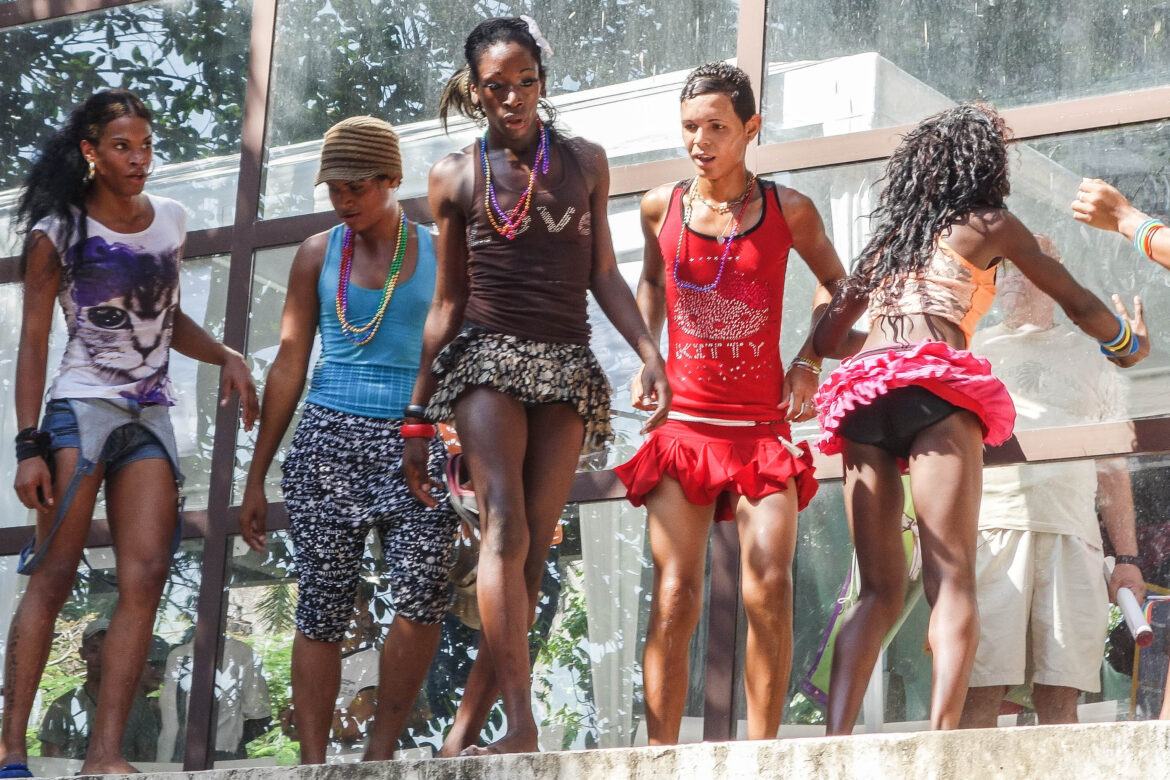This September, in a historic societal and political shift, Cubans overwhelmingly voted to ratify arguably the most progressive family code in the world. This code was part of a massive governmental drive to overhaul a number of antiquated constitutional articles regarding gender, sexuality, and family. The language used in these articles made same-sex marriage functionally illegal and provided possibilities for an unbalanced domestic power dynamic. Now, however, the Cuban family and all the structures around it have expanded to be more inclusive. As the President of Cuba, Miguel Diaz-Canel, wrote on Twitter following the ratification of the code, “El Amor Ya Es Ley,” love is now the law.
The history of LGBT rights in Cuba is similar to that of many other countries: rife with repression and unequal treatment. In Cuba, this repression took the form of machismo. Qualities of masculinity and male pride were encouraged to the detriment of members of the LGBT community. Homosexuality was actively discouraged, and men deemed too effeminate would occasionally be sentenced to work at labour camps as a way of rehabilitation. Although the Cuban Revolution, wherein Fidel Castro and his fellow revolutionaries from the Movimiento 26 de Julio (26 July Movement) overthrew the brutal dictator Fulgencio Batista in 1958, achieved great things in the spheres of education, health, and general wellbeing of the populace, it did little to improve the discrimination faced by LGBT people. Popular opinion on homosexuality remained intertwined with patriarchal notions of machismo, while the newly formed government under Castro maintained that homosexuality was antithetical to the characteristics that made a “true revolutionary.” They justified this position with the belief that homosexuality was a product of the bourgeois capitalistic decadence that Cuba had been prone to prior to its socialist revolution. Only in the last few decades has public notions of homosexuality begun to relax. In his 2006 autobiography, Castro criticized machismo culture, urging Cubans towards acceptance of homosexuality. Again in 2010, during an interview with the Mexican newspaper La Jornada, Castro labelled the discrimination and persecution of homosexuals during his time in power a “great injustice,” saying that “if anyone is responsible, it’s me.”
The new family code, lauded as one of the most progressive in the world, makes amendments to numerous articles in the constitution. Marriage is no longer gendered but is now defined as the “voluntary union of two people on the basis of affection, love and mutual respect.” The code also furthers rights and protections for children. Instead of having custody of and authority over children, guardians now have a legal responsibility to care for them. Grandparents now have a powerful say in what happens with their grandchildren, there are harsher penalties for domestic violence, and working rights for full-time caregivers have been expanded. In summary, the code builds towards a more cohesive and unified family structure, enabling families rather than restricting them. Contrary to how policy is implemented in a number of other countries, these changes to the family code were not the result of government bureaucrats working to impose the new law on the populace but rather the result of years of public debate and consultation wherein 49% of the original proposals in the code were modified to fit public opinion.
Far from being universally loved, however, the code was met with fierce opposition from various sectors of society. Religious groups, particularly the Catholic Church, which holds relatively substantial power over Cuban society, have been noted for their vehement resistance to the ratification of the new family code. In 2018, a number of Christian denominations banded together to put forwards a statement declaring same-sex marriage as “contrary to the spirit of the communist revolution.” Aside from religious opposition to the code, the vote to ratify the code occurred while Cuba was dealing with Hurricane Ian, which later briefly left the entire island nation without power. This, at a time when the country was already afflicted with a number of economic problems due to fallout from the COVID-19 pandemic and the U.S. blockade, led to many international observers speculating about whether the vote would turn into a protest vote against the government rather than a vote on the contents within the code. Nonetheless, the government persisted in its enormous media campaign, rallying vast amounts of people to support the code.
September 25th arrived, and Cubans finally headed to the polls to vote for or against the new family code. The result was an overwhelming majority in support of the ratification of the revolutionary code. 67% of voters, nearly four million Cubans, voted to ratify the family code with a turnout of 74%. Though these may seem like high percentages, and they are, Cuban referendums typically are met with even more overwhelming support. For example, the constitutional referendum in 2019 was approved by 91% of voters and similarly had an enormous turnout of 90%. The (relatively) low turnout and support for the family code may point towards the protest vote that many international observers predicted would take place. Nonetheless, the ratification of the family code affirms the faith that the Cuban people still hold in their government and the position of equality in society.
This referendum has pushed Cuba into the spotlight as a champion of LGBT and family rights across the world. Though the historical injustices are real and can not be forgotten, the Cuban people and their government have strived to right the wrongs of the past. The passing of this code affirms the place of democracy in Cuba and assures that countries across the world, particularly in Latin America, will now be looking towards Cuba as a representative of the progressive cause and strive to emulate the Cuban example.
Edited by Alyana Satchu
Alexander Morris-Schwarz is a third-year student at McGill University where he is majoring in Political Science with a minor in Communication Studies. Alexander is currently a staff writer for Catalyst and he is interested in international relations and imperialism.

